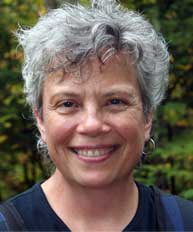Spirituality and recoveryPosted Jul 2, 2012 |
|
 [Episcopal News Service] Each week, my home church hosts eleven Alcoholics Anonymous, Al-Anon, and other 12 Step groups. I know a number of parishioners who struggle with alcoholism. But addiction has been largely a hidden disease and tragedy for our church, just as I suspect it is in many parishes.
[Episcopal News Service] Each week, my home church hosts eleven Alcoholics Anonymous, Al-Anon, and other 12 Step groups. I know a number of parishioners who struggle with alcoholism. But addiction has been largely a hidden disease and tragedy for our church, just as I suspect it is in many parishes.
Recently we sponsored an adult education series on spirituality and alcoholism that helped shed light on this disease-in-the-shadows. We heard stories from those whose lives had been nearly destroyed by alcohol, but who have found their way to sobriety and healing. They told us that while there are clearly physiological and cultural aspects to alcoholism, at its core it springs from spiritual emptiness. It is a disease of isolation, one that progressively separates a person from family and community. That is why the most successful treatment model, the 12 Step Program, is based upon a belief in a Higher Power. Recovery itself, they said, can only be understood as a miracle.
During the series I was especially moved by the witness of Jim Stands, a recovering alcoholic who visited us from the Rosebud Indian Reservation in South Dakota. For many years his life spiraled downward because of his addiction to alcohol, until 27 years ago he was able to stop drinking. He’s now director of the White River Recovery Center, which is a program run by the Roman Catholic St. Francis Mission on the reservation.
Jim invited my husband and me to visit him on the Rosebud Reservation, which we did a few weeks ago on a trip through South Dakota. We were honored to be hosted warmly by Jim, who along with his friend Sylvan White Hat took us on a whirlwind tour through the reservation’s rolling grasslands, thick forests, and lush river valleys. They spoke of the traditions and strengths of the Lakota people and shared their own stories of recovery.
But we also learned of the darker side of reservation life. While some of its small towns are doing well, others are poverty stricken and desperately sad. As we drove we passed dozens and dozens of crosses on the sides of the roads, a poignant reminder of the high rates of accidents on the reservation because of drunk driving.

Jim Stands is director of the White River Recovery Center on the Rosebud Indian Reservation in South Dakota. Photo/Lori Erickson
In Jim’s office, he showed us a wall of family photographs, beginning with a striking, black-and-white image of his grandfather, a Lakota chief named Stands and Looks Back. The picture was taken around 1900 and shows a regal-looking man wearing a chief’s headdress and carrying a fan made of eagle feathers. His grandfather had gotten his name, Jim said, when in a battle he had stood and looked back over the field to see if anyone was left alive.
Jim then showed us pictures of his father and brothers, handsome and well-educated men. “But all of them died young of alcoholism,” Jim said. “And even though I was the black sheep of the family for many years, I was the only one who managed to get in recovery and pull my life together.”
Now one could see the pictures on Jim’s wall as simply tragic—a vivid illustration of the destructive vortex that claimed both his family and culture. But there is hope in Jim’s story as well. Though Jim fights on a different battlefield, he is a warrior as brave and strong as his grandfather. He also stands and looks back, in his case to see who is left alive in the battle with alcoholism. A devout Catholic, Jim relies both on his Christian faith and his Lakota heritage for inspiration and strength.
The Rosebud Reservation provides a lesson in the destructive power of alcoholism, but also gives hope that even in the most desperate of circumstances, its power can be overcome. Many people on the reservation are working to reclaim their heritage and build a healthier society.
Those of us who are fortunate enough not to be trapped by addiction would do well to listen to the stories of those who have traveled down that road to hell and back. Their stories are an enactment of the Gospel promise of salvation and an illustration of a theme repeated again and again in the Bible. God typically does not choose those who are strong and without flaws; instead he delights in finding those who are lost, healing them, and then using them to spread his message of hope. Recovering alcoholics know that truth better than almost anyone else.
— Lori Erickson writes about inner and outer journeys at Spiritual Travels: Practical Advice for Soulful Journeys. She serves as a deacon at Trinity Episcopal Church in Iowa City, Iowa.

Social Menu